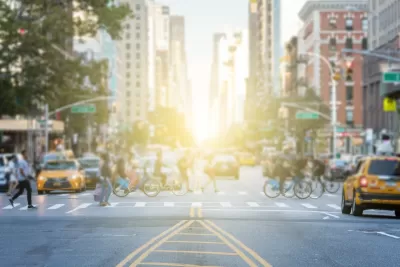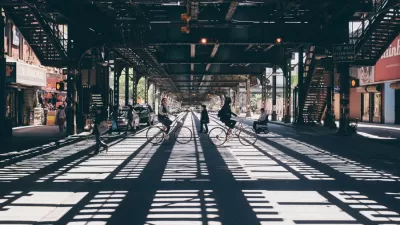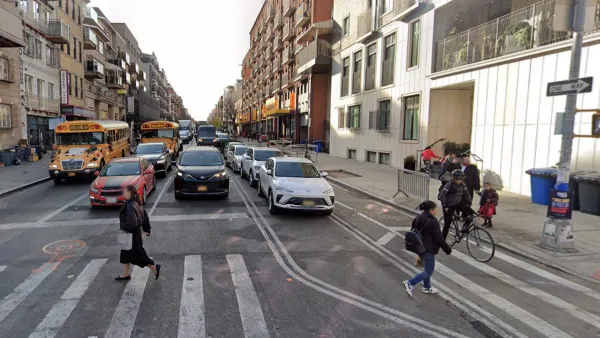Why a proposed bill that would require e-bikes, e-scooters, and other motorized mobility devices would be difficult, expensive to enforce, and ineffective.

In an op-ed in Streetsblog NYC, Shabazz Stuart argues that a proposed e-bike registration bill would be ineffective.
Stuart writes, “I’ve spent most of my career managing public space at the city’s third-largest Business Improvement District and championing the creation of a regional secure bike parking and charging network with my company, Oonee. As such, I can promise that if this bill becomes law, not only will it fail to achieve its own stated goals, it will stand alone as one of the most regressive urban transportation policies of the 21st century.”
Stuart notes that bike advocates have for decades been calling for more protected bike lanes and other infrastructure that makes it safe for people to ride e-bikes on city streets and not on sidewalks. Requiring all powered bikes, scooters, and other devices including motorized wheelchairs to be registered would be “expensive, difficult to enforce, prejudicial and practically useless.”
Other cities that have attempted bike registration programs have ended them, Stuart points out. “Registration mandates are notoriously difficult to enforce at almost every level of government. The federal government intended Real IDs to be the FAA standard in 2008, but the program suffered from low compliance, even with the full muscle of state DMVs and the specter of not being able to fly. Today, only 56 percent of Americans have converted, 19 years after the original goal of 100 percent.”
FULL STORY: Op-Ed: Council E-Bike Registration Bill Is Impossible to Enforce, Unnecessary … and Won’t Even Work

Maui's Vacation Rental Debate Turns Ugly
Verbal attacks, misinformation campaigns and fistfights plague a high-stakes debate to convert thousands of vacation rentals into long-term housing.

Planetizen Federal Action Tracker
A weekly monitor of how Trump’s orders and actions are impacting planners and planning in America.

In Urban Planning, AI Prompting Could be the New Design Thinking
Creativity has long been key to great urban design. What if we see AI as our new creative partner?

King County Supportive Housing Program Offers Hope for Unhoused Residents
The county is taking a ‘Housing First’ approach that prioritizes getting people into housing, then offering wraparound supportive services.

Researchers Use AI to Get Clearer Picture of US Housing
Analysts are using artificial intelligence to supercharge their research by allowing them to comb through data faster. Though these AI tools can be error prone, they save time and housing researchers are optimistic about the future.

Making Shared Micromobility More Inclusive
Cities and shared mobility system operators can do more to include people with disabilities in planning and operations, per a new report.
Urban Design for Planners 1: Software Tools
This six-course series explores essential urban design concepts using open source software and equips planners with the tools they need to participate fully in the urban design process.
Planning for Universal Design
Learn the tools for implementing Universal Design in planning regulations.
planning NEXT
Appalachian Highlands Housing Partners
Mpact (founded as Rail~Volution)
City of Camden Redevelopment Agency
City of Astoria
City of Portland
City of Laramie





























